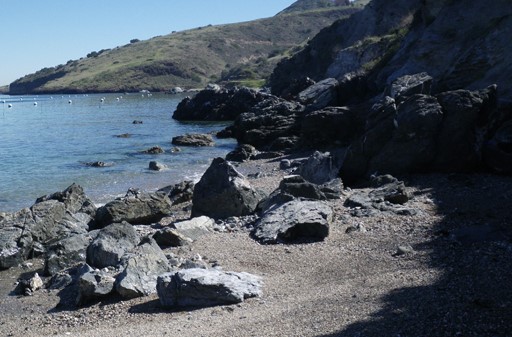Executive Vice Provost Elizabeth A. Graddy, Ph.D., has announced that a multi-disciplinary team including John P. Wilson, Ph.D., and Yolanda Gil, Ph.D., of the Spatial Sciences Institute is one of three teams awarded a 2020 research grant from the USC Center for Sustainability Solutions (CSS).
In the announcement, Graddy said, “With support from the Provost’s Office, the Center for Sustainability Solutions provides funding to. . . important projects. . ., which play a vital role in the university’s commitment to sustainability.”
The purpose of the CSS multi-disciplinary research grant program is to provide seed funding to advance the University’s research in sustainability by developing major projects that provide sustainability solutions with novel multi-disciplinary approaches. The proposals were required to have principal investigators from at least two different schools at USC that address a specific sustainability problem or problems in the Los Angeles region and beyond. The Center encouraged proposals that developed new methodologies or technologies that could broadly apply to a range of sustainability issues.
The winning project with Drs. Wilson and Gil as co-principal investigators is “Towards a Gen-4ERC on AI and Data Science for Data-Rich Water Modeling in California.” Joining them as the third principal investigator is Felipe de Barros, Ph.D., associate professor of Civil and Environmental Engineering, Sonny Astani Department of Civil & Environmental Engineering in the USC Viterbi School of Engineering. Dr. Gil is a research professor of Computer Science and principal scientist with the USC Information Sciences Institute in the USC Viterbi School of Engineering, as well an affiliated faculty member in spatial sciences with the USC Spatial Sciences Institute. Dr. Wilson is a professor of sociology and spatial sciences with appointments in the Departments of Civil and Environmental Engineering and Computer Science in the Viterbi School of Engineering, the Department of Preventive Medicine in the Keck School of Medicine of USC, and the USC School of Architecture.
The de Barros, Gil and Wilson team will prepare an NSF Gen-4 ERC proposal to establish an NSF Engineering Research Center (ERC) by:
- defining a compelling long-term research agenda to model accurately the inter-relationship between water quality and quantity given expected future climate conditions;
- finding partners at USC and at other organizations across the state and nationally;
- conducting preliminary investigations on the state-of-the-art and the data resources available;
- formulating a clear technical focus for the ERC that leads to better engineer hydrological systems to improve water availability while keeping resources sustainable; and
- developing outreach plans with compelling broader impacts for California and beyond.
This ERC would result in novel unique long-term decadal quantitative resources hosted by USC to enable accurate modeling of water quantity and water quality dynamics to support data-rich water resources management in California, leading the way for other states and the world in water sustainability.
“I’m thrilled to have this opportunity to work with Drs. Gil and de Barros. This project leverages our different and yet complementary backgrounds where ‘the sum of the parts is greater than the whole,’” said Wilson. “We share the commitment to contribute to a more sustainable California.”
Learn more about the research of the faculty of the USC Spatial Sciences Institute at https://spatial.usc.edu/research-innovation/.




